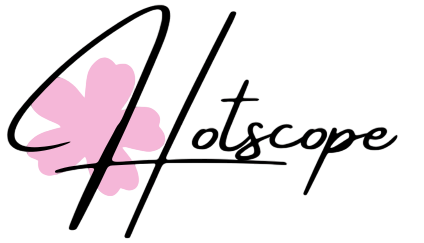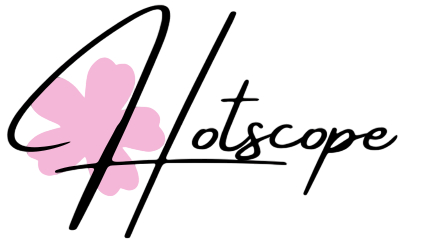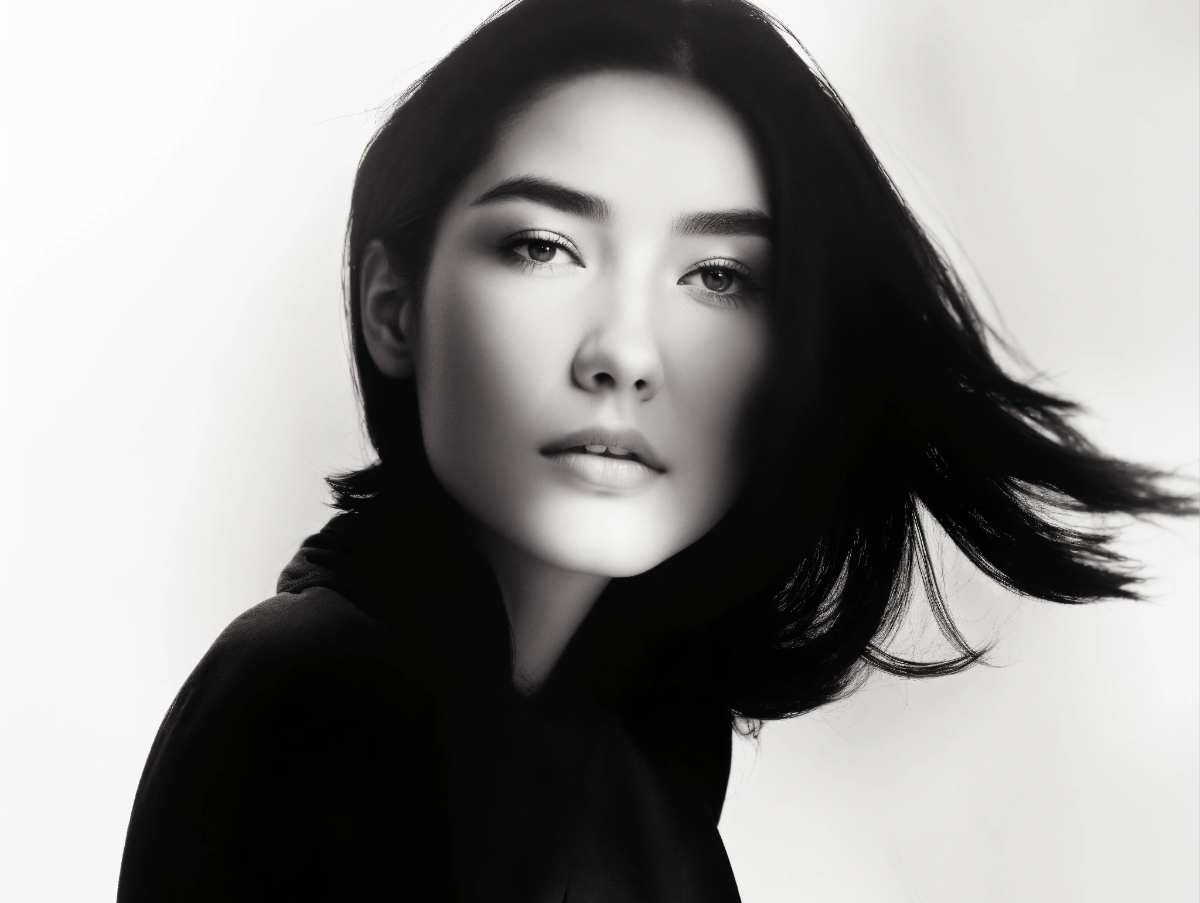Hair damage from heat styling tools is a common problem for many people. The good news is that you can still get beautiful hairstyles without using heat. This article covers simple, effective ways to style your hair without damaging it. As someone who’s worked with all hair types for over 15 years, I’ll share what actually works.
Why Heat Damages Hair
Before we look at heat-free methods, let’s understand why heat is harmful:
- Heat breaks down the protein bonds in your hair
- It removes natural moisture from your strands
- Repeated use causes split ends and breakage
I’ve seen countless clients with brittle, broken hair from daily heat styling. One client came to me after two years of daily straightening—her hair was so damaged it broke off at the touch.
Benefits of Heat-Free Styling
When you stop using heat on your hair:
- Natural oils remain in your hair, keeping it shiny
- Hair becomes stronger and breaks less
- Natural texture improves
- Color treatments last longer
- Hair grows longer without breaking off
Best Heat-Free Styling Methods
1. Overnight Braids for Waves
This is one of the oldest tricks in the book, but it works amazingly well.
How to do it:
- Wash your hair and let it dry until damp (about 70% dry)
- Apply a small amount of leave-in conditioner
- Divide hair into sections (2-8 depending on thickness and desired wave size)
- Braid each section
- Sleep with the braids in
- Remove braids in the morning and gently separate them with fingers
Pro tip: For tighter waves, make smaller braids. For looser waves, make fewer, larger braids. This works for all hair types but gives the most noticeable results on straight-to-wavy hair.
2. Twist-Outs for Defined Curls
This method is excellent for curly and coily hair types.
How to do it:
- Start with damp, detangled hair
- Apply a styling cream or curl enhancer
- Divide hair into small sections
- Twist each section from root to tip
- Let dry completely (air dry or use a bonnet dryer on low/no heat)
- Untwist when fully dry and separate gently with oiled fingers
Pro tip: The smaller the twists, the tighter the curl pattern. Larger twists create looser curls. I’ve found that a curl-enhancing cream with shea butter works best for definition and hold.
3. Flexi Rods for Bouncy Curls
Flexi rods create bouncy curls without heat and work for all hair lengths past chin length.
How to do it:
- Start with damp hair
- Apply a setting lotion or foam
- Take a small section of hair and wrap it around the rod
- Bend the ends of the rod to secure
- Continue until all hair is wrapped
- Let dry completely (overnight or under a hooded dryer on a cool setting)
- Remove rods and style as desired
Pro tip: Wrap hair around the rod away from your face for a more flattering curl. For fine hair, use smaller rods for better hold.
4. Bantu Knots for Tight Coils
This traditional African hairstyling technique creates amazing spiral curls.
How to do it:
- Start with damp, detangled hair
- Apply a styling cream
- Section hair into squares (size depends on desired curl tightness)
- Twist each section and wrap it around itself to form a knot
- Secure with a bobby pin if needed
- Let dry completely
- Unravel and separate with oiled fingers
Pro tip: To prevent frizz, don’t touch the hair until it’s completely dry. This method works beautifully on natural hair types 3A-4C.
5. Hair Rollers – The Classic Choice
| Roller Type | Best For | Result |
|---|---|---|
| Foam rollers | Medium to long hair | Soft curls |
| Velcro rollers | All hair types | Volume and body |
| Pillow soft rollers | All hair types | Comfortable overnight styling |
| Magnetic rollers | Fine to medium hair | Defined curls |
How to use rollers:
- Start with damp hair for maximum hold
- Apply a setting lotion
- Roll sections of hair, securing each roller
- Let hair dry completely
- Remove rollers and style as desired
Pro tip: For overnight comfort, use soft fabric rollers. For fine hair that struggles to hold a curl, use a light-setting lotion and smaller rollers.
6. Pin Curls for Vintage Waves
This old Hollywood technique creates beautiful waves and works for all hair lengths.
How to do it:
- Start with damp hair
- Take a small section and wrap it around your finger
- Slide your finger out while maintaining the curl
- Pin the curl flat against your head
- Repeat until all hair is pinned
- Let dry completely
- Remove pins and gently brush through
Pro tip: Make all curls face the same direction for uniform waves or alternate directions for more natural movement. I did this for a bride recently who wanted 1940s-inspired waves—the style lasted all day without hairspray.
7. No-Heat Hair Wrapping
How to do it:
- Start with damp hair
- Comb hair smoothly around your head, following the curve of your skull
- Cover with a silk scarf
- Let dry completely
- Unwrap and style with fingers
Pro tip: This works best on hair types 3A-3C that have been stretched first through gentle techniques like banding.
Products That Enhance Heat-Free Styling
- Setting lotions: Help styles last longer
- Leave-in conditioners: Add moisture and reduce frizz
- Styling creams: Provide hold without crunchiness
- Mousse: Adds volume without heaviness
I recommend alcohol-free products since alcohol can dry out your hair, defeating the purpose of heat-free styling.
Simple Morning Routines for Heat-Free Hair
Here are some quick styles for busy mornings when you don’t have time for elaborate styling:
5-Minute Twisted Bun
- Gather hair into a ponytail
- Twist the ponytail
- Wrap it around the base
- Secure with pins
3-Minute Headband Style
- Place a stretchy headband over your hair
- Leave ends free for a casual look
These styles work on second or third-day hair and actually look better when hair isn’t freshly washed.
Expert Tips for Heat-Free Success
After years of working with clients trying to break their heat styling habits, here’s what really helps:
- Be patient: Heat-free styles often take longer to set, but the results last longer
- Layer products: Start with the lightest product and work up to the heaviest
- Don’t skip protection at night: Use a silk or satin pillowcase or bonnet to preserve styles
- Please work with your texture: Heat-free styling works best when you enhance your natural pattern rather than fighting it.
- Trim regularly: Heat-free styling won’t fix split ends, so keep up with regular trims
Common Problems and Simple Solutions
| Problem | Solution |
|---|---|
| Frizzy results | Use more product and make sure hair is fully dry before taking down the style |
| Style falls flat quickly | Your hair might be too clean—try styling on second-day hair |
| Undefined curls | Make smaller sections when setting your style |
| Tangles when taking down braids | Use oil on your fingers when separating |
| Hair won’t dry | Make sure sections aren’t too thick and air can circulate |
How to Transition from Heat to Heat-Free
Many people find it hard to suddenly stop using heat. Here’s a gentle transition plan:
- Cut back to using heat once a week.
- Master one heat-free style you can rely on
- Try heat-free styling on weekends first.
- Use heat tools in a lower setting when you do use them.
- Schedule a haircut to remove the most damaged ends.
One of my clients who had severe heat damage followed this plan. After six months, her natural curl pattern returned, and she no longer felt she needed her straightener.
How Different Hair Types Benefit from Heat-Free Styling
Straight Hair (Type 1)
- Gets more volume and texture
- Holds styles longer without slipping out
- Develops natural wave patterns over time
Wavy Hair (Type 2)
- Waves become more defined and consistent
- Less frizz and more shine
- The natural patterns become more pronounced
Curly Hair (Type 3)
- The curl pattern becomes more uniform
- Less breakage at fragile points
- More moisture retention and bounce
Coily Hair (Type 4)
- Better length retention as breakage decreases
- The more defined curl pattern
- Improved moisture balance
Seasonal Heat-Free Styling Tips
Summer
- Use protective styles that keep hair off your neck
- Refresh styles with water and light oil instead of restyling
Winter
- Deep condition more often to combat dryness
- Allow extra drying time since air-drying takes longer
- Use loose styles that won’t cause tension headaches under hats
Conclusion
Heat-free styling is more than just avoiding damage—it’s about working with your hair’s natural tendencies to create styles that look good and make your hair healthier. As someone who’s seen the transformation in countless clients, I can tell you that the adjustment period is worth it.
The most important thing is consistency. Your hair won’t recover from heat damage overnight, but with regular heat-free styling, you’ll start to see improvements within a few weeks.
Do you have a favorite heat-free styling method? Try one of these techniques and see how your hair responds—you might be surprised at how good your hair can look without a single hot tool.
FAQs
Q: How long does it take to see results from going heat-free?
- A: Most people notice less breakage within 2-3 weeks. Significant improvement in hair health takes about 3 months as new, undamaged hair grows in.
Q: Can heat-free styling work for very short hair?
- A: Yes! Pin curls and small twists work well for pixie cuts and short bobs. For very short hair, try using a styling paste and scrunching for texture.
Q: My hair is very straight and slippery. Will heat-free styles hold?
- A: Straight, slippery hair can be challenging, but using a setting lotion and smaller sections when styling helps. Also, try styles on second-day hair when natural oils give more grip.
Q: How do I know if my hair is actually damaged from heat?
- A: Look for split ends, brittleness, lack of shine, and hair that breaks easily when gently pulled. Hair that feels “crunchy” or very dry is also likely heat-damaged.
Q: Will my heat-damaged hair ever recover its natural curl pattern?
- A: This depends on the severity of the damage. Some curl patterns can return with consistent heat-free care, but severely damaged sections may need to be cut off as new, healthy hair grows in.
Q: How do I keep my heat-free style looking fresh for multiple days?
- A: Sleep with your hair protected in a silk or satin bonnet or pillowcase. In the morning, refresh only the pieces that need it with a tiny bit of water and oil on your fingers.
A Practical Guide to Going Heat-Free
Starting a heat-free hair journey is simple with this straightforward plan. Many people find it hard to know where to begin, so I’ve put together these steps based on what has worked for my clients.
The first step is to put away your heat tools. This might sound scary, but it helps break the habit. Next, check what products you have. You’ll need:
- A good leave-in conditioner
- Something for hold (mousse, gel, or setting lotion)
- A light oil for finishing
- Bobby pins, hair ties, and scarves
Start with simple styles like braids or twists. These are hard to mess up and work for most hair types. Do these styles at night before bed so your hair can be set while you sleep.
In the morning, take your time undoing the style. Use a little oil on your fingers to stop frizz. Don’t brush curls unless you want them fuller.
For the first few weeks, your hair might not behave how you want. This is normal. Your hair has been trained to rely on heat, and it needs time to adjust. Take photos of your results so you can see what works best.
When your hair starts to feel different—softer, less brittle—you’ll know it’s getting healthier. This usually happens after about 3-4 weeks of no heat.
The key to success is not giving up when you have a bad hair day. Everyone has them, even with heat styling. Keep a few simple backup styles ready: a low bun, a headband, or a simple braid can save the day when nothing else works.
Remember that your natural hair texture is unique. Rather than trying to make your hair look like someone else’s, focus on making your natural texture look its best. This mindset shift makes heat-free styling much more satisfying.
Many of my clients say they actually save time once they master heat-free styling. Instead of spending 30 minutes with a blow dryer every morning, they spend 5-10 minutes at night setting their hair and just a minute or two styling in the morning.
Heat-free styling gets easier with practice. The techniques that seem hard at first will become second nature. Your fingers will learn what your hair needs and you’ll find shortcuts that work for you.
Going heat-free doesn’t mean you can never use heat again. Many people find that after their hair recovers, they can use heat once in a while for special occasions without causing damage. The key is making heat the exception rather than the rule.
The most common reason people go back to heat styling is because they haven’t found heat-free styles they like. Try different methods until you find what works for your hair type, length, and lifestyle. There’s a heat-free style out there for everyone—it just might take some experimenting to find yours.





